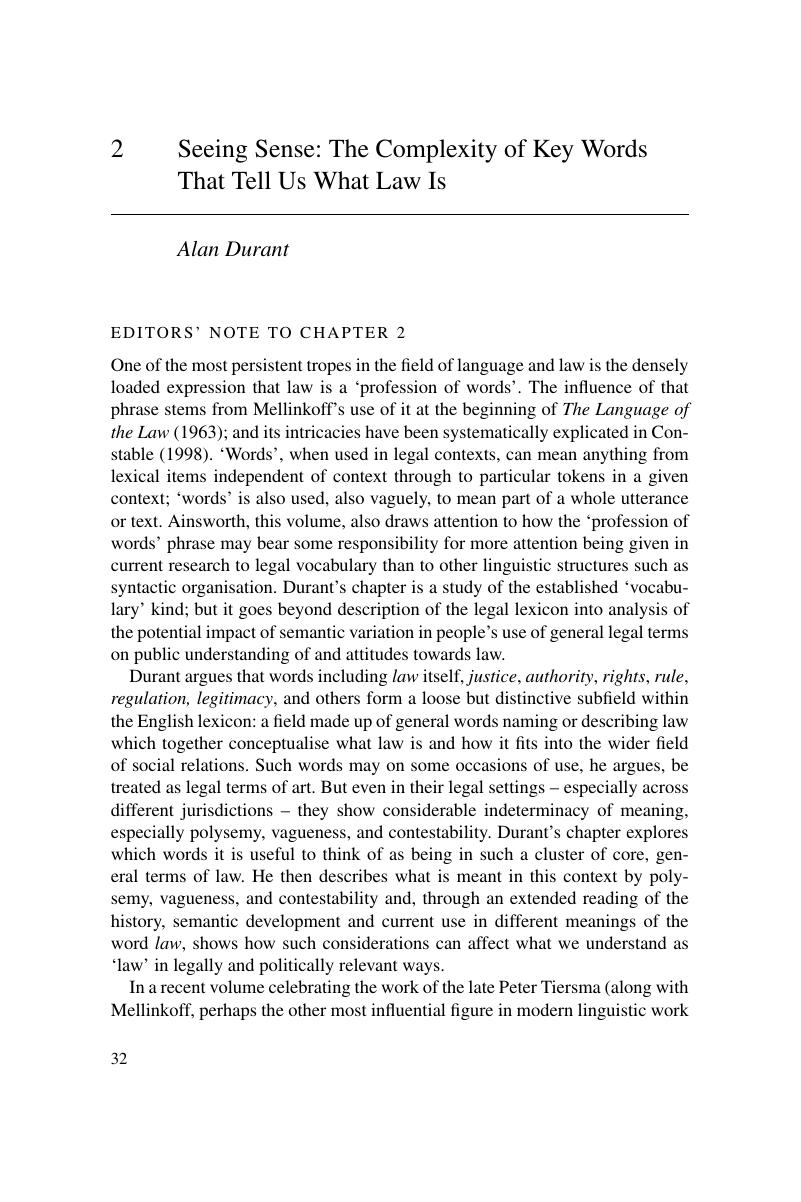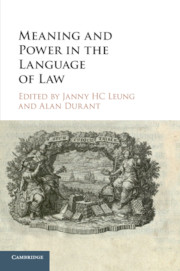Book contents
- Meaning and Power in the Language of Law
- Meaning and Power in the Language of Law
- Copyright page
- Contents
- Contributors
- Acknowledgements
- Editors' Introduction
- Part I Sui generis or Socially Problematic: The Character of Legal Language
- 1 The Unspoken Language of the Law
- 2 Seeing Sense: The Complexity of Key Words That Tell Us What Law Is
- 3 Hiding in Plain Sight: The Category of Ordinary Language and the Case Law Domain of Transgender Marriage1
- Part II Imperfect Fit between Legal Categories and Social Discourse
- Part III Written in Silence: Hidden Social Meanings in Legal Discourse
- Part IV Conflict between Linguistic and Legal Ideologies
- Part V Demands of Law and Limits of Language
- Afterword
- Index
- References
2 - Seeing Sense: The Complexity of Key Words That Tell Us What Law Is
from Part I - Sui generis or Socially Problematic: The Character of Legal Language
Published online by Cambridge University Press: 28 December 2017
- Meaning and Power in the Language of Law
- Meaning and Power in the Language of Law
- Copyright page
- Contents
- Contributors
- Acknowledgements
- Editors' Introduction
- Part I Sui generis or Socially Problematic: The Character of Legal Language
- 1 The Unspoken Language of the Law
- 2 Seeing Sense: The Complexity of Key Words That Tell Us What Law Is
- 3 Hiding in Plain Sight: The Category of Ordinary Language and the Case Law Domain of Transgender Marriage1
- Part II Imperfect Fit between Legal Categories and Social Discourse
- Part III Written in Silence: Hidden Social Meanings in Legal Discourse
- Part IV Conflict between Linguistic and Legal Ideologies
- Part V Demands of Law and Limits of Language
- Afterword
- Index
- References
Summary

- Type
- Chapter
- Information
- Meaning and Power in the Language of Law , pp. 32 - 70Publisher: Cambridge University PressPrint publication year: 2018

